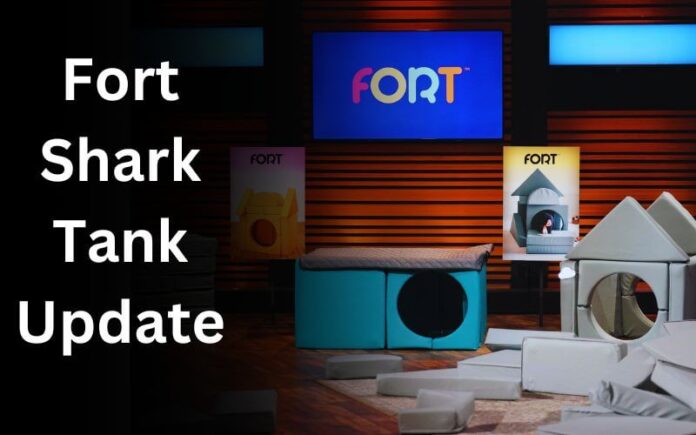In the world of entrepreneurship, some ideas take off like a rocket, while others fizzle out despite initial promise. The story of FORT, a magnetic pillow fort building kit, is one such tale that captured the imagination of many but ultimately faced challenges that led to its demise. Let’s dive into the journey of FORT and its founder, Conor Lewis, as they navigated the treacherous waters of the business world.
The Fort Pitch and Deal at Shark Tank
Conor Lewis, the mastermind behind FORT, appeared on Season 13 of the popular TV show Shark Tank, seeking an investment of $500,000 for a 10% stake in his company. Lewis passionately pitched his innovative product, which aimed to revolutionize the way children build and play with pillow forts. The FORT kit consisted of magnetic foam blocks that could easily connect to create sturdy and imaginative structures, eliminating the need for couch cushions and reducing the mess associated with traditional fort building.
Despite Lewis’s enthusiasm and the product’s potential, the Sharks expressed concerns about the high production costs, shipping challenges, and the steep $500 price tag per set. Ultimately, Lewis left the tank without securing a deal from any of the investors.
Is Fort Still in Business?
Unfortunately, as of May 2023, FORT has officially gone out of business. The company faced numerous challenges that hindered its growth and sustainability. One of the primary issues was the high cost of production, which made it difficult for FORT to maintain profitability while offering the product at a reasonable price point. Additionally, shipping the bulky and heavy FORT kits proved to be a logistical nightmare, leading to delays and unfulfilled orders.
To make matters worse, the U.S. Consumer Product Safety Commission issued a recall on all FORT products due to concerns regarding the magnet system used in the kits. This recall dealt a significant blow to the company’s reputation and financial stability.
What Was Fort Net Worth?
At the time of its appearance on Shark Tank, Conor Lewis valued FORT at $5 million, based on his ask of $500,000 for a 10% stake. However, the company’s actual net worth remained uncertain, as it had not yet generated substantial revenue or secured significant investments.
FORT’s initial success on Kickstarter, where it raised an impressive $2 million in just ten hours, hinted at its potential. However, the challenges that followed, including high production costs, shipping issues, and unfulfilled orders, quickly eroded the company’s financial standing. By the time FORT ceased operations, its net worth had likely diminished significantly.
Business Overview
FORT’s business model revolved around selling innovative magnetic pillow fort-building kits directly to consumers. The company aimed to capture the imagination of children and parents alike by offering a product that encouraged creative play while minimizing the mess and destruction often associated with traditional fort building.
Despite the initial buzz generated by the Kickstarter campaign, FORT struggled to sustain its momentum. The high production costs and shipping challenges made it difficult for the company to fulfill orders in a timely and cost-effective manner. Additionally, the steep price point of $500 per set limited the product’s accessibility to a wider market.
As customer complaints began to mount, with issues ranging from delayed or missing deliveries to refusal of refunds and low-quality products, FORT’s reputation took a significant hit. The company’s inability to effectively address these concerns and maintain customer satisfaction ultimately contributed to its downfall.
Conclusion
The story of FORT serves as a cautionary tale for aspiring entrepreneurs. While the product itself was innovative and had the potential to capture the hearts of children and parents, the challenges faced by the company highlight the importance of sound business acumen, effective financial planning, and exceptional customer service.
Conor Lewis’s journey with FORT demonstrates that a great idea alone is not enough to guarantee success. Entrepreneurs must be prepared to navigate the complexities of production, logistics, pricing, and customer satisfaction to build a sustainable and thriving business.
As for the future of FORT’s founders, only time will tell what new ventures they may pursue. However, the lessons learned from the rise and fall of FORT will undoubtedly shape their approach to entrepreneurship moving forward.
For aspiring entrepreneurs, the story of FORT emphasizes the need for thorough market research, realistic financial projections, and a customer-centric approach. By learning from the mistakes and challenges faced by others, future business leaders can increase their chances of success and avoid the pitfalls that led to FORT’s unfortunate demise.
Also Read:
